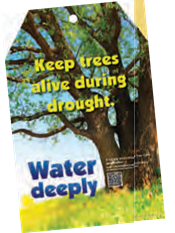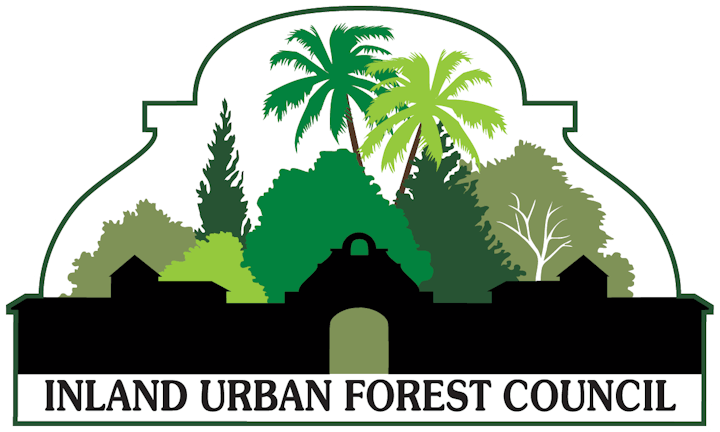Urban Forestry
Community forests are fundamental components of urban ecosystems, and their management is essential for creating sustainable communities. RCRCD works to increase canopy cover and promotes best practices and urban forest management planning. The District partnered with the Inland Urban Forest Council (IUFC) to bring professional education programs to local tree- care professionals. Staff has helped build IUFC’s capacity by assisting with newsletters, displays, and an online presence, including Facebook and website.

RCRCD partnered on development of an award-winning Waterwise Tree Care campaign, which includes a publication and large tree “Price Tags” that are hung in trees to raise awareness about the value of trees and watering trees during drought.
The Waterwise Tree Care publication is on each partners’ website, and the Tree Tags were hung in trees and circulated through social media on Facebook, Nextdoor.com, etc. with the message: “Prioritize watering trees during a water shortage. Trees take many years to grow and provide numerous benefits. Learn about simple ways to water deeply and reduce tree stress that invites disease, pests and death.” The tree tags have a QR code with links back to the publication on one side, and links to “Invest from the Ground Up”, a site that highlights the benefits of trees on the other side.
Both the publications and tree tags were in high demand. The Waterwise Tree Care publication was reprinted with additional funding from Western Municipal Water District, Metropolitan Water District, and Riverside Public Utilities. RCRCD scheduled coverage of the issue drought-stricken trees, and a 24-minute program was taped for Riverside Public Utilities’ Green Power Report. The program aired on the Monday night radio show and webcast. As a result of the campaign, partner Western Municipal Water District also developed a bill insert based on the tree tag.
The California Urban Forest Council recognized RCRCD with the Excellence in Education award for its work in urban forestry during 2015-2016.
Staff worked with a coalition of tree care professionals and Audubon volunteers to develop best practices and public messaging about tree trimming during nesting season.

